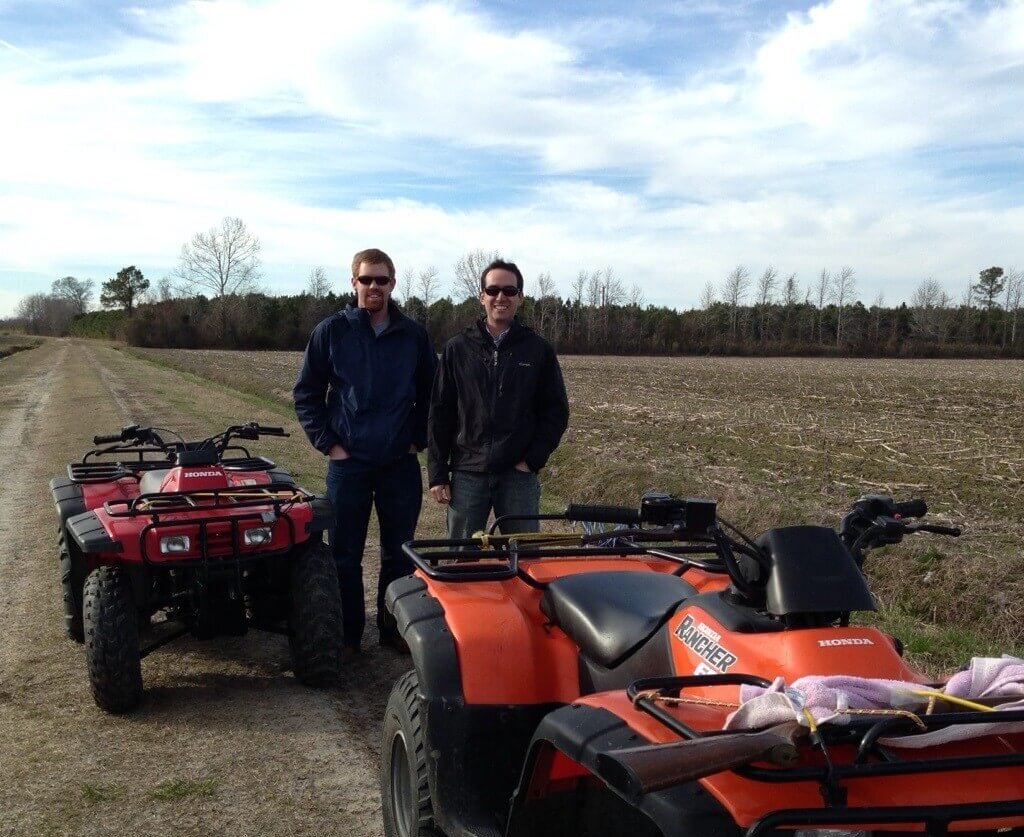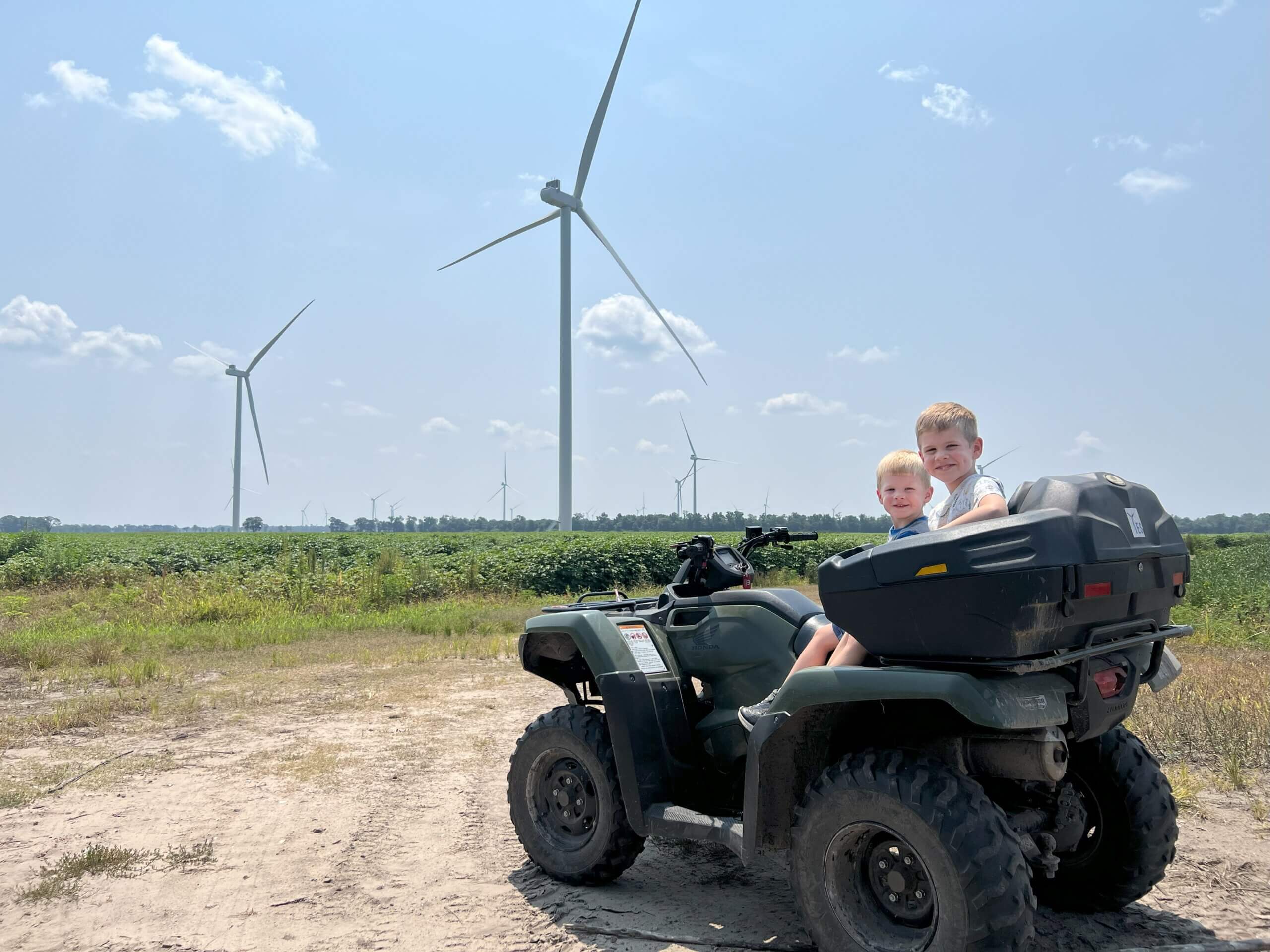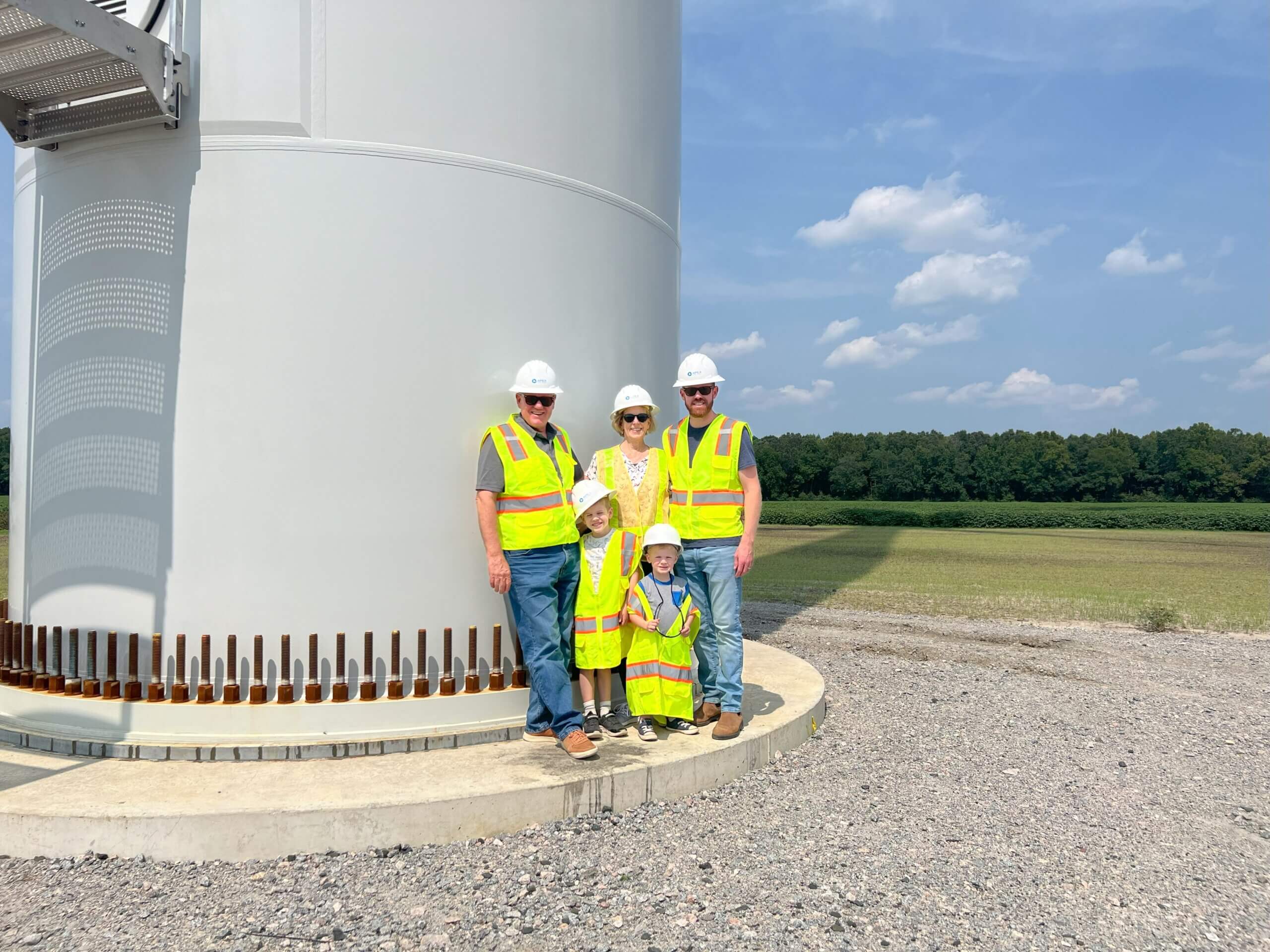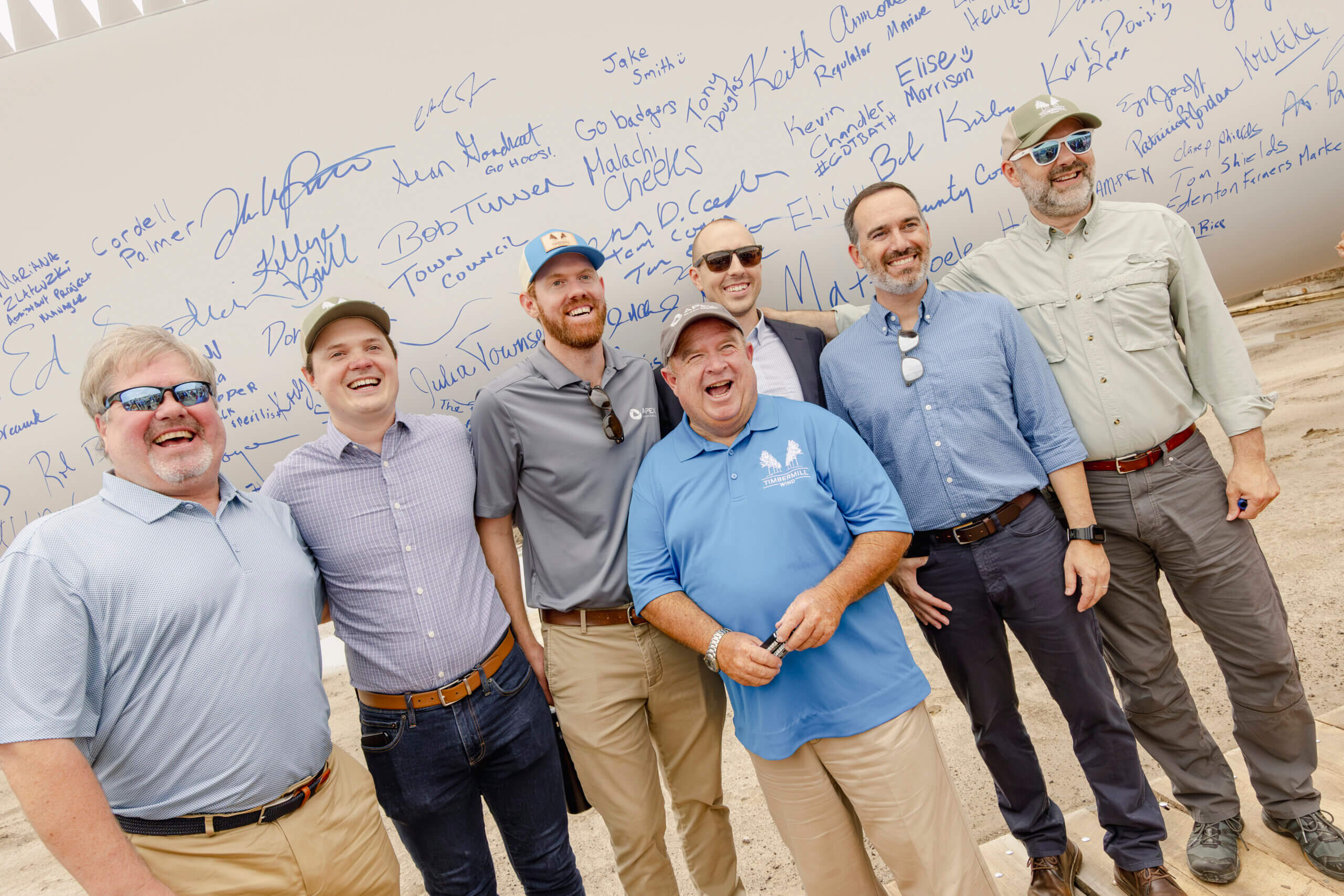Achieving a Decade-Long Dream
A commitment to personal relationships helped build the second-ever wind farm in North Carolina.
The call came in for Charlie Johnson a week before he even started at Apex: “Buckle up,” said the director of development. “We just signed Weyerhaeuser.”
He was referring to a lease agreement that had been finalized with the anchor landowner—an American timberland company—for Timbermill Wind, a new project in northeastern North Carolina, near Edenton. This was in May 2013, and Johnson had just accepted a position as development manager at Apex after having graduated from James Madison University a year prior.
“For two years, every other week I was down in the Edenton area working to sign leases,” recalled Johnson. “It’s a lot of time spent at kitchen tables, talking to landowners and getting to know their families.”
Nowadays, Apex has the resources to dedicate specialized teams to each element of the development process, but when Johnson began, the growing renewable energy company had just celebrated its fifth birthday. The team was much smaller, and a single developer like Johnson could often be fully responsible for getting a project off the ground: “You were the face of Apex in these communities,” said Johnson.


A Cause for Celebration
Fast forward nine years, and this past July, Johnson joined a group of nearly 100 Apexers and over 200 Chowan County residents at a turbine blade signing recognizing the culmination of the 11-year process that resulted in Timbermill Wind’s construction. Although residents were thrilled to see the project come to fruition, many shared a common view: at some point, they didn’t think Timbermill Wind was going to happen.
“I think some folks worried we were just sinking money into this project,” said Johnson. “But it’s a testament to Apex’s determination and the commitment of the Chowan County community that we all kept our belief in Timbermill’s potential.”
Through the peaks and valleys that can emerge when developing such a large-scale project, Apex spent over a decade deepening its connection to the community that would stand to benefit from it. To Johnson, that dedication is what shored up support for Timbermill—and ultimately got it over the finish line. “Folks from across the political spectrum backed the project because the benefits were too real to pass up.”
Putting People First
To listen to Johnson talk about Timbermill is to hear a string of first names that have had a direct impact on the project becoming a reality. Gene (Jordan) is a landowner and school board member whom Johnson signed a lease with early on and who spoke at the blade signing. Richard (Bunch) was one of Johnson’s first meetings on the project—a local resident and former member of North Carolina’s Northeast Commission who eventually became a local project representative for Apex. Phil (Smith) is a local farmer who still picks up the phone on the first ring when he sees it’s Johnson calling. Each of them—and many others—have a special relationship with Johnson, and each played a crucial role in the project’s ultimate success.
“Representing Apex never meant putting on a show. I was down there at 23 years old talking to folks that I still have relationships with 11 years later, even as I’ve moved to a totally different position within the company,” Johnson said. “Meaningful partnerships take time to develop—you set aside an hour and a half to meet up with a landowner, and four hours later you’re leaving the farm.”
Something about how Apex approached the work—exemplified in Johnson’s patience and focus on getting to know the individuals he was working with—connected with the residents of Chowan County. He helped them see the vision, and because of that, the community will be able to realize the immense benefits created by renewable energy.
Coming Full Circle
One of the most impressive aspects of seeing a wind farm in person is the scale of the construction operation. These projects, which live for so long as calculations and projections in the depths of a computer hard drive, spring up from the ground—a combination of science, math, and sweat, toil, and tears.
To listen to Johnson talk about Timbermill is to hear a string of first names that have had a direct impact on the project becoming a reality.
“I went down the night before the blade signing to spend some time with the local residents and Apex employees on the job site,” Johnson reminisced. “Driving down highway 32 about 15 minutes outside of Edenton, I knew when the turbines should start popping up because I’d driven that road so many times. I was watching the horizon, knowing in my head, ‘It’s coming, it’s coming,’ and then boom: you start seeing turbines. I was by myself, fist pumping in the car, thinking ‘Wow, these are actually real.’”
A few weeks later, Johnson returned to Chowan County—this time, with his parents and two children in tow. “My kids come into the office all the time. They know what a wind turbine is, but for them to hear someone like Richard say, ‘Your dad did this,’ I think my job took on a whole new meaning for them.”

And for his mom and dad, who had never seen a wind farm up close, it was a proud moment watching their son’s decade-long dream finally realized. After countless hours on the phone with Johnson on his drives down and back from Charlottesville, the project had taken on special significance for them as well.
“After the boys went to bed that night, I got to share that experience with my parents—that was one of the best moments.” Johnson said. “They got to see something I’ve been talking about since I graduated from college—since before I was married, before I had kids. They knew what it meant to me, and they got to see wonder in the eyes of their grandchildren, seeing for the first time what their dad—with so many others—had helped build. That was something that only a parent could understand.”

